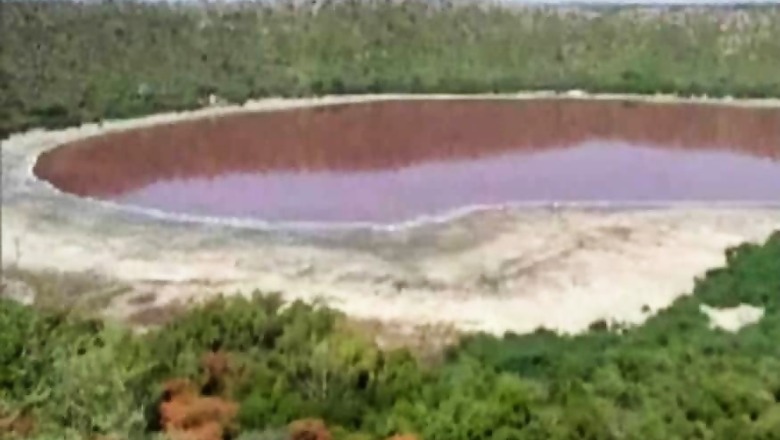
views
The Nagpur bench of Bombay High Court has sought reports from the National Environmental Engineering Research Institute (NEERI) and the Geological Survey of India on the environmental impact assessment of the Lonar lake, the colour of which has turned pink.
A division bench of Justices Sunil Shukre and Anil Kilor on Monday heard a petition filed by one Kirti Nipankar, raising concerns over the change in colour of the lake water.
The bench said a court-appointed committee, including the judges themselves, shall also visit the site.
The oval-shaped Lonar lake, formed after a meteorite hit the Earth some 50,000 years ago, is a popular tourist hub located in Maharashtra's Buldhana district.
The colour of the lake water recently turned pink, which has not only surprised locals, but also nature enthusiasts and scientists.
The state forest department informed the court on Monday that it has already collected the lake water samples which have been sent for probe to the Nagpur-based NEERI and the Agarkar Research Institute in Pune.
Advocate Anand Parchure, appearing for the petitioner, told the court that an expert team which is probing the colour change phenomena could also examine findings submitted by NASA expert Dr Shawn Wright.
As per Wrights findings, there is a glass formation over the surface of the bed rock of the Lonar crater, which is a basalt rock, and this is a new feature not found anywhere else on the Earth and is found only on the beds of craters existing on moon.
After hearing the contentions, the bench directed NEERI and the Agarkar Research Institute to submit their reports to the court.
The bench further said, "The expert team from NEERI and also the Geological Survey of India (GSI) shall examine the findings regarding glass formation on surface of the
crater lake by collecting requisite samples and analysing them, and submit their reports within a period of four weeks."
The court also directed the state irrigation department to collect on a regular basis data of water levels of not only the Lonar lake but also a dam constructed at the
upper level.
The forest department also informed the bench that since the area is an eco-sensitive zone, the construction of Lonar-Kinhi road would be a problem, as the area has large
quantity of a unique material called ejecta blanket, which contains the same substance as is found on the moon.
The court accepted the argument and directed Buldhana district collector to take immediate steps to protect the ejecta blanket material from possible theft and pilferage.
It also prohibited construction of the Lonar-Kinhi Road until further orders, and posted the matter for hearing on June 29.
The bench said considering the developments, a court-appointed committee, including the judges themselves, shall visit the site, and directed the authorities concerned to make
all necessary arrangements for their travel.




















Comments
0 comment